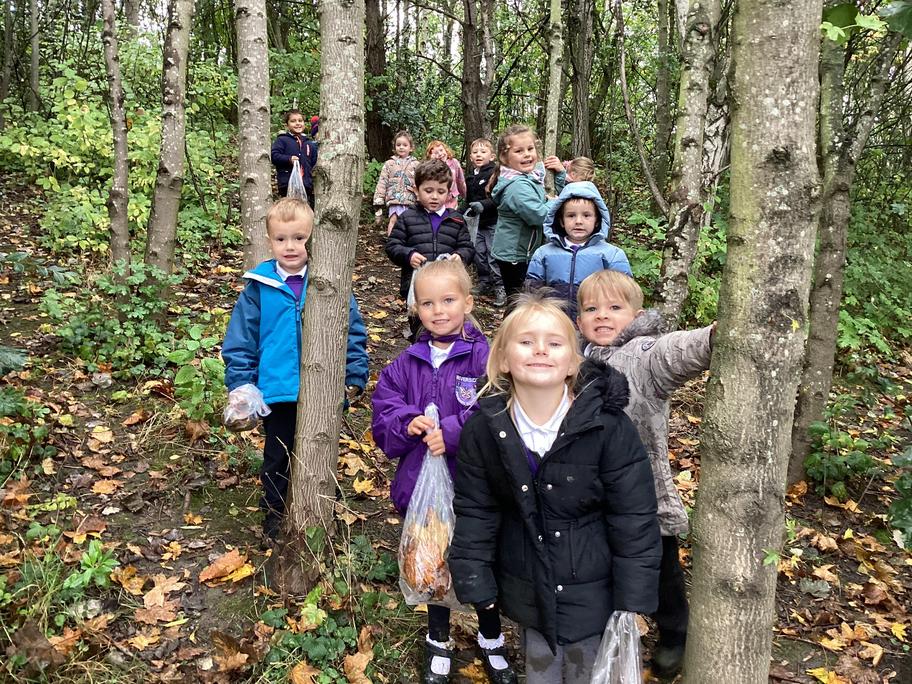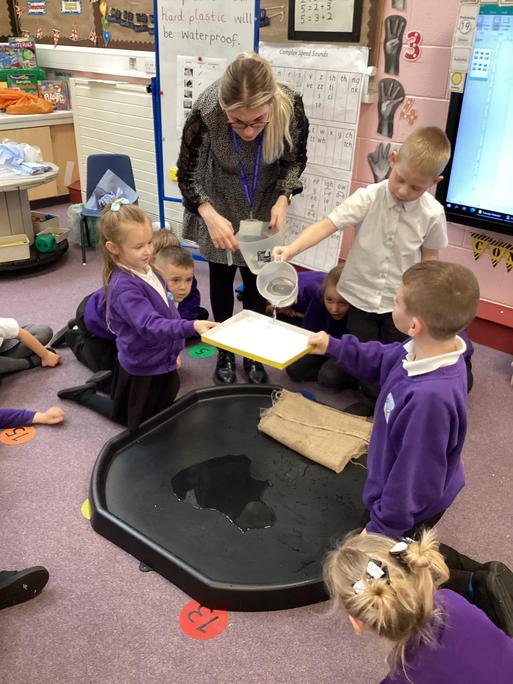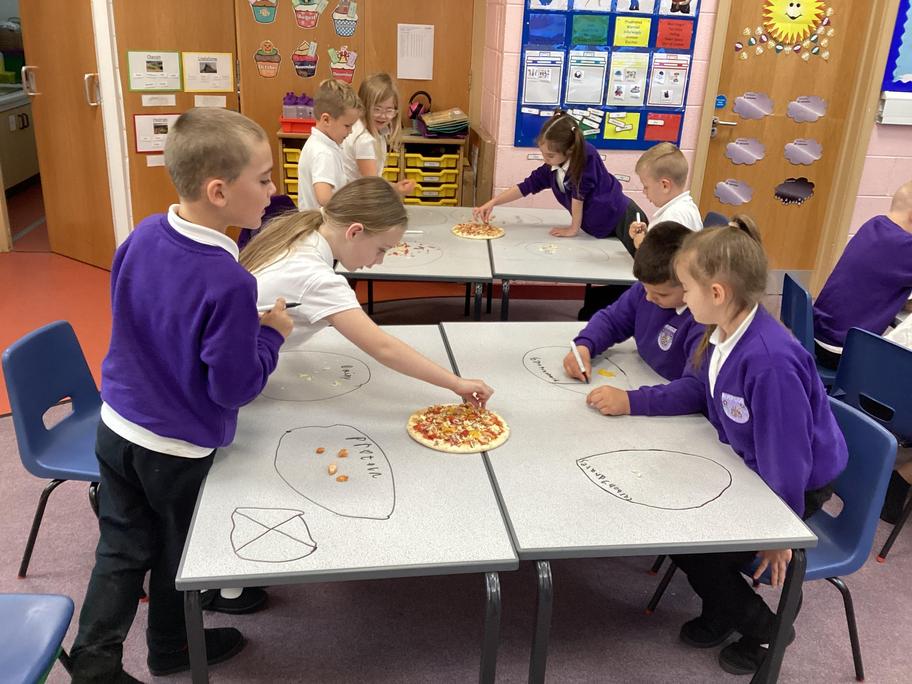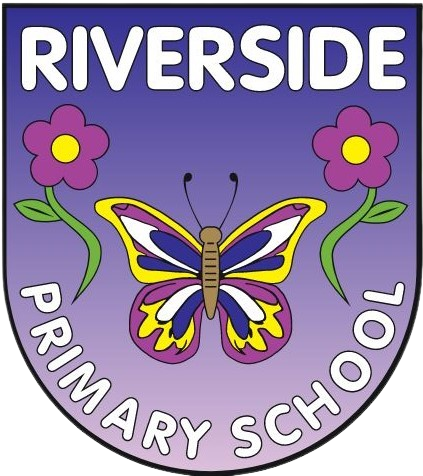Science
At Riverside Primary School we value Science as a core subject and therefore dedicate a substantial amount of time to it in the curriculum.
We aspire to ensure that all of our pupils become scientists. Pupils enter EYFS as naturally curious learners and we seek to develop this by promoting investigations resourced by the teacher but planned and developed by the children enhancing their ability to ask questions and find out more about the world around them. During the pupils journey as scientists at Riverside, they will be able to plan and conduct fair test investigations, presenting and interpreting their results to an audience. As pupils progress through the school, they will be able to predict the results of future experiments as well as write conclusions for experiments, based on scientific evidence.
Pupils will also learn about the world around them and their love of Science will be enhanced through regular trips and visitors. They will show an understanding of how scientists and scientific theories have helped contribute in our every day life.

Early Years Foundation Stage
Within the Foundation Stage (Nursery and Reception), the Early Years Foundation Stage Framework is followed. The ‘Science’ aspect of the curriculum is followed through the areas 'Understanding the World' and 'Personal, Social and Emotional Development'.
Science teaching is integrated into the overall topics or themes of the half term. During EYFS, children learn to:
- Make healthy choices about food, drink, activity and toothbrushing and knows the different factors which support these.
- Use all their senses in hands-on exploration of natural materials
- Talk about the differences between materials and changes they notice
- Explore collections of materials with similar and/or different properties
- Plant seeds and cares for growing plants
- Understand the key features of the life cycle of a plant and an animal
- Understand the need to respect and care for the natural environment and all living things
- Describe what they can see, hear and feel whilst outside
- Recognise some environments that are different to the one in which he/she lives
- Explore the natural world around them making observations and drawing pictures of animals and plants
- Know some similarities and differences between the natural world around them and contrasting environments, drawing on their experiences and what has been read in class
- Understand the effect of changing seasons on the natural world around them
- Understand some important processes and changes in the natural world around them, including the seasons and changing states of matter

Key Stage 1
The principal focus of science teaching in key stage 1 is to enable pupils to experience and observe phenomena, looking more closely at the natural and humanly constructed world around them. They should be encouraged to be curious and ask questions about what they notice. They should be helped to develop their understanding of scientific ideas by using different types of scientific enquiry to answer their own questions, including observing changes over a period of time, noticing patterns, grouping and classifying things, carrying out simple comparative tests, and finding things out using secondary sources of information. They should begin to use simple scientific language to talk about what they have found out and communicate their ideas to a range of audiences in a variety of ways. Most of the learning about science should be done through the use of first-hand practical experiences, but there should also be some use of appropriate secondary sources, such as books, photographs and videos. ‘Working scientifically’ must always be taught through the Programme of Study and clearly related to the teaching of substantive science content Pupils should read and spell scientific vocabulary at a level consistent with their increasing word-reading and spelling knowledge at Key Stage 1.

Lower Key Stage 2
The principal focus of science teaching in lower Key Stage 2 is to enable pupils to broaden their scientific view of the world around them. They should do this through exploring, talking about, testing and developing ideas about everyday phenomena and the relationships between living things and familiar environments, and by beginning to develop their ideas about functions, relationships and interactions. They should ask their own questions about what they observe and make some decisions about which types of scientific enquiry are likely to be the best ways of answering them, including observing changes over time, noticing patterns, grouping and classifying things, carrying out simple comparative and fair tests and finding things out using secondary sources of information. They should draw simple conclusions and use some scientific language, first, to talk about and, later, to write about what they have found out. ‘Working scientifically’ must always be taught through the Programme of Study and clearly related to substantive science content. Pupils should read and spell scientific vocabulary correctly and with confidence, using their growing word-reading and spelling knowledge.

Upper Key Stage 2
The principal focus of science teaching in upper Key Stage 2 is to enable pupils to develop a deeper understanding of a wide range of scientific ideas. They should do this through exploring and talking about their ideas; asking their own questions about scientific phenomena; and analysing functions, relationships and interactions more systematically. At upper key stage 2, they should encounter more abstract ideas and begin to recognise how these ideas help them to understand and predict how the world operates. They should also begin to recognise that scientific ideas change and develop over time. They should select the most appropriate ways to answer science questions using different types of scientific enquiry, including observing changes over different periods of time, noticing patterns, grouping and classifying things, carrying out comparative and fair tests and finding things out using a wide range of secondary sources of information. Pupils should draw conclusions based on their data and observations, use evidence to justify their ideas, and use their scientific knowledge and understanding to explain their findings. ‘Working and thinking scientifically’ must always be taught through the Programme of Study and clearly related to substantive science content. Pupils should read, spell and pronounce scientific vocabulary correctly.
